A piece of bark given by a baobab tree sits on my altar. On it are the tracks and scrapings of beetles, worms and termites, the inscriptions of lives she once held. An elephant might have rubbed that piece of bark loose, or the tree might have lent it to the ground beneath her and the creatures of her soil in the partnership of sheltering they have developed over time.
In Africa, baobabs are known as ‘upside down trees’ because their branches look like gnarled roots. The elephants rub and rub against them until the trees get hollowed out. But this does not kill them. They simply regenerate from the inside out. Much of savannah life seeks refuge inside those hollow trunks: birds, insects, foxes, bees, snakes and sometimes fugitives, usually poachers. Inside the hollow, the bark forms a rough skin with whorls and creases that look like the tips of elbows, or vulva, or turtle shells, each sculpted pattern a universe. In spring, the trees are festooned with huge, elongated fruits covered with circles that look like eyes looking at nothing, seeing everything.
Baobabs live for thousands of years. I want to know what they know, in the way they have come to know it. I want to see the elephant herds as the baobabs saw them, huge and unchallenged by farmers or tourists or hunters in helicopters. Baobabs bring time with them. They are carriers of secrets known only to themselves. They look like they’re dancing or embracing as they reach their branches tenderly around the heat-shimmering air, or the icy stars, and make long-fingered perches for the moon when she grows weary and wants to sit awhile in the noisy night silence. She gathers the light of earth’s turning and pours it through the baobab’s branches, creating shadows like webs of veins as together they x-ray the night. Bats and leopards, hyenas and scorpions watch the show, a nocturnal audience whose clicks and coughs, grunts and screeches knit the world together.
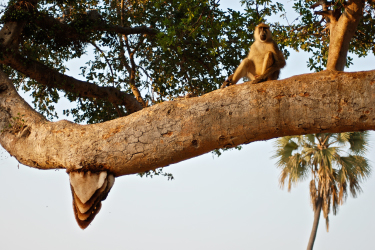
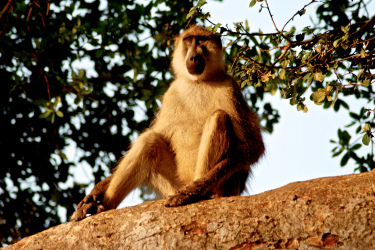
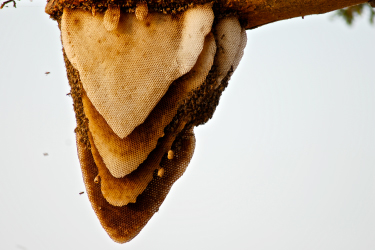
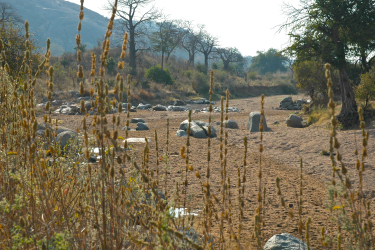

We had been in the Ruaha game reserve in Tanzania for three days, sighing, gasping, at the edges of our seats and the edges of our breath. There were sand rivers like freshly raked zen gardens, pocked with hoof prints and lion tracks and elephant potholes. Boulders and bushes were arranged just so, and water appeared in sudden veins and pools bluer than the sky, peeking through drifts of fallen gold leaves turning purple as bruises in the afternoon sun. A red-beaked guinea hen perched on a sable gray termite mound that rose from the scrub like a fist. A bat eared fox stared out from within a roadside cairn of stones at a crossroads. On the morning of my son’s and my shared August birthday, because we are Leos, he wished to see lions, and right away there were twelve of them feasting on a freshly killed kudu, dragged to the side of the road as if in gracious response to our longing.
In the shade of an immense sausage tree, a baboon sat motionless as the Buddha, watching us from an overhanging limb, his ash-white fur framed in tufts of dark brown, with only his eyes moving as he tracked us. Underneath the branch hung a beehive, a huge, suspended triangle of honeycomb white as the baboon, except for the glistening bees surging and buzzing around it.
We had chosen to visit the Ruaha in part because we had re-read Peter Matthiessen’s book, The Sand Rivers. The spell of the Ruaha was so strong and its beauty so deep, we seemed to have stepped into another frequency. How fitting, then, and how miraculous, that on the morning of our first day a vehicle pulled up next to ours and out stepped Peter Matthiessen himself, with his wife, Maria. He: rugged and lean, terse, curmudgeonly. She: roundish, talkative, smiling, kind. Perhaps he regretted that his work had brought anyone at all to this favorite place.
Gratitude casts a spell, and the force field of mystery is irresistible, so when I saw the Mother of all Baobabs and she whispered my name, I suddenly felt I had to get out of the car and walk towards her. Brandishing my camera, I asked our guide to please stop for a photo. His name was Josphat but he had the practiced patience of Job, and he stopped the car. When I asked to get out and walk a bit closer to that tree, he must have said yes because suddenly I was striding into the bush as if I had stepped onto a conveyor belt and had only to keep moving my legs while it carried me to the Mother Tree. I would soon be scrambling up boulders and clambering into her branches to rock in her embrace and look out over the plain to gaze into the far distance as she saw it. A ringing silence encased me and carried me forward as if dormant cells of her ancient roots had awakened in my belly and were suddenly reaching toward her and pulling me with them.
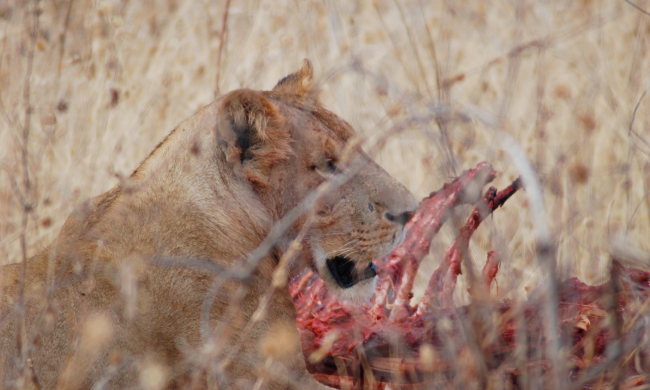
It was only the frantic shouts and whistles of Josphat, and then my son and everyone else in the car, that called me back. I heard them faintly at first, as if from another room. Then words like ‘Lions!’ and ‘Come back!’ filtered through, and began exerting a counterforce to the Mother Tree. I remember turning my head and seeing the looks of alarm on their faces, everything in slow motion like a flashback, then looking back at the tree, and turning away again to begin the slow, reluctant walk back to the car. I was so sure I was safe and that I was meant to go to her. Couldn’t they feel it, too? Though their upset surprised me and I regretted their worry, I regretted more having to leave her. Was it hubris, or maybe ignorance, that made me think I could just walk up there like that as if immune to danger, as if I could actually wander so far and scale that little cliff or shimmy up her massive trunk? Perhaps ignorance and hubris played their part. And yet, I know the call was real because I can feel the longing even now, fluttering in my chest like a memory of wings.
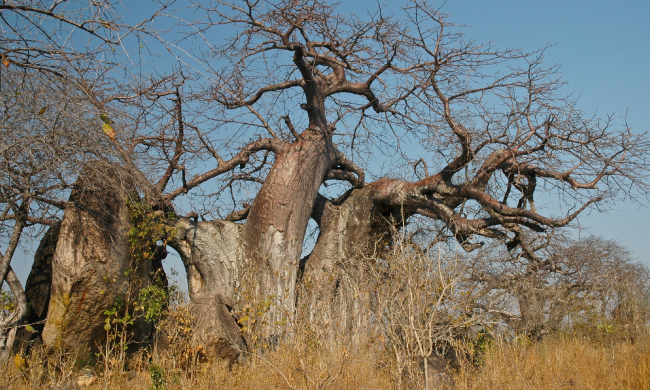
This is Africa – the original world and the world as it ought to be, every detail of every mystery incomprehensible in its completeness and its scale, and decipherable only to the senses and a heart touched by grief. This is Eden because it contains all the hair-brained experiments ever conducted by mad-scientist coyote Creator. It is an encyclopedia of love in all her forms. And it’s a great big, badass, who’s-your-daddy, walk-in closet big enough for death’s entire wardrobe. Without these contradictions, it wouldn’t be Eden. I want to share breath with all the herds, especially the rhinos, with their impossible horns and their armored plates that belie the softness of their snouts, soft as a horse’s muzzle or a grandmother’s cheeks. I know this because I kissed one once, a rhino in Texas, of all places, as far from baobabs as one can get. He came to the edge of his enclosure and when I sang to him he leaned his face against the taut metal wire of the fence and fell asleep, his face rumpled against the fence post from the weight of his massive head, as he leaned forward bending one front leg, balanced like a dancer on the tip of his hoof. I moved my hands slowly toward him until his tender-skinned nose was cupped in my hands, and then I leaned in a little further until I could smell his grassy breath, sweet and dusty, breathing in as he breathed out, breathing out as he breathed in, until stacks of eons fell away, my lungs filled with the breath of his kin, all his ancestors all the way back through 65 million years, and I could smell the spaciousness of original time, smokeless and silent, as it gathered itself and fell forward.
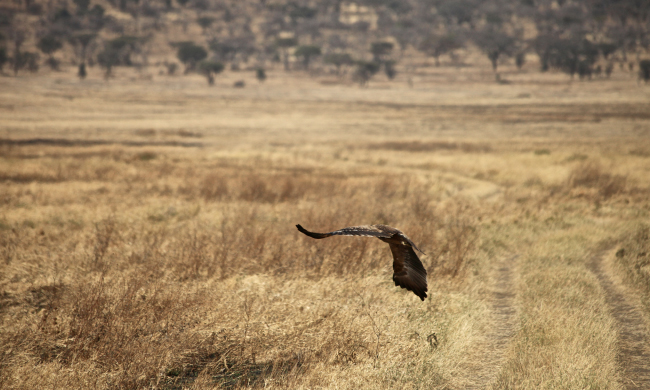
There has been a terrible accident and we have been struck in the head by a greed that has erased all memory of where we came from, amnesia of the heart. Only the tender caress of the Beloved will awaken us. It is not for us to ask to be inscribed in the book of Life for one more year, but rather to beg that the Book of Life be inscribed in us once again. Then we must read each page until the letters dance before us and we leap from our seats to join them. This is the original library, a source text written in fur and sand, claw and hide and dung, the library before Alexander, and before Alexandria. This is the archive that, if it burns, cannot be recovered.
About the Author
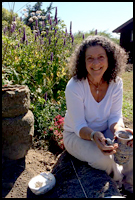
Cynthia Travis is a writer and documentary filmmaker, and is Founder & President of the non-profit peacebuilding organization everyday gandhis (www.everydaygandhis.org). Since 2004, peacebuilders from everyday gandhis have been working with traditional communities, women and ex-combatants in Liberia, West Africa, and with selected schools and communities in the US. All projects arise from dreams and community dialogue. She recently launched the new blog, Borders and Edges (www.borders-and-edges.blogspot.com). In a former life she was a teacher and mediation trainer for children in California and New Mexico. She lives in a small intentional community on the Mendocino Coast.
Return to top